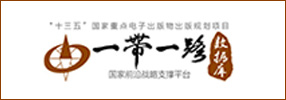
社会科学文献出版社 2013-07出版
西方反科学思潮的历史变迁

先晓推荐
相关海报
详情
展开
西方反科学思潮是活跃在人类历史长河中不容忽视的、复杂多变的哲学、文化和社会思潮。它与科学思潮一般被视为两种相互对立的历史现象和文化范畴。长久以来,国内外学术界鉴于该思潮在形式和内容上的错综芜杂,一直缺乏较为系统、深入的研究。本书从科学思想史、科学哲学、科学文化、科学传播、宗教史、文学史和社会史等角度,阐释了反科学的概念,勾勒自前科学时期至20世纪末西方反科学思潮历史变迁的全景式历史画面,概括其不同发展阶段的主要特征,为推动学界在西方反科学思潮研究方面的系统化和规范化,融合科学文化与人文文化、科学精神与人文精神以及科学价值和人文价值提供一个可资借鉴的研究进路。
前科学时期,古希腊、古罗马神话故事及《圣经》故事等以隐喻和象征的形式反对作为科学前身的自然知识。古希腊哲学学派从相对主义和怀疑主义出发,质疑和排斥自然哲学理论和观念。在中世纪教父神学家的论著中,到处弥散着怀疑和颠覆自然哲学学说的立场和言论。前科学时期的反自然知识和反自然哲学的认知范式,通过反对探索自然界,来达到维护自身理念和价值,以及终极信仰的目的。它们为近代反科学思潮的兴起奠定了理论基础和概念框架。
从16世纪至19世纪,伴随着近代自然科学的诞生,第一场真正意义上的反科学思潮开始登上人类历史舞台。它由浪漫主义思潮中生发,在西欧各国学界迅速崛起,并发展成为一股由民众广泛参与的社会浪潮。这股浪潮在以众多作家、诗人和文学家等为代表的人文知识分子的推动下,否定科学的理性认知模式和牛顿机械方法论,提倡一种主观直觉主义、有机整体主义的认识论和方法论。19世纪下半叶,近代浪漫主义反科学思潮逐渐进入尾声,在英国维多利亚晚期的“世纪末”颓废气氛中徘徊。同期,以尼采为代表的德国唯意志论哲学家批判科学理性、科学真理、科学方法和科学客观性等传统科学基本要素,搭建起通往现代和后现代反科学思潮的桥梁。
从20世纪初到20世纪60年代前后,经典科学遭遇危机和技术的负面作用不断扩大,加之两次世界大战造成的灾难阴影,使得人本主义思想家对科学理性生发憎恶感。他们基于悲观主义立场,从非理性主义、直觉主义和神秘主义视角批判和颠覆科学理性和客观性。此外,科学哲学历史主义学派挑战了科学传统认识模式,“科学破产论”和“暂停科学论”的喧嚣此起彼伏,它们共同催生出以反主流文化为特征的现代反科学思潮。这股思潮由四种强劲的反科学群体和势力集结而成,即反文化运动的反科学、对科学的新浪漫主义批判、复苏的宗教与神秘主义和激进环保主义运动。它们主要从认识论视角,希图动摇科学的文化主导性、颠覆科学的客观性和合理性。
20世纪下半叶,伴随后现代主义思潮的兴起,整个学界的思想根基遭遇严重挑战。在“科学终结论”的冲击和“新纪元”运动的鼓噪下,后现代批判理论家思想中孕育了以解构科学为目的的后现代反科学思潮。在先前“文化大战”的作用下,一场爆发于科学与人文领域的“科学大战”将这股反科学思潮推向高潮。后现代反科学思潮主要由“科学的社会和文化研究”中的科学社会学家、女性主义者和激进生态主义者组成,他们从社会建构主义和文化相对主义视角出发,解构传统科学的认识论和方法论。
在研究过程中,本书主要采用两种研究方法:一是历史和逻辑相统一的研究方法。将反科学思潮放在整个西方思想文化背景下进行考察,追踪不同历史时期反科学思潮的主要特征和逻辑表现形式,力求为进一步揭示科学和人文思想发展中的规律和机制开辟一个新的研究视角。二是文献分析和比较分类的研究方法。依靠该方法,在分散的、庞杂的一手和二手文献中,梳理和发现西方反科学思潮发展的历史线索及其聚焦的问题。
本书的研究意义主要体现在如下四个方面:(1)国内外学术文献对于西方反科学思潮的历史研究还未做出全面而系统的梳理,本书的研究工作尝试填补这一学术缺憾。(2)通过历史的探究、哲学的省思以及文化的拷问,系统素描西方反科学思潮的整体图像和特征。西方反科学思潮一直在科学图景中不断变换形式和内容:由近代浪漫主义反科学思潮强调对科学理性认知模式和方法论的批判,到现代反主流文化反科学思潮着重认识论层面对科学文化主体地位的否定,再到后现代解构主义反科学思潮突出对科学认识论和方法论的全面彻底颠覆。由此,本书为目前关于反科学的研究做出新的归纳和综合。(3)西方反科学思潮随着科学思潮的逐渐发展壮大,发展趋势也由弱到强,因此,西方反科学思潮对科学以及社会发展的影响不断加深、扩大。西方反科学思潮危害科学的健康发展和传播,应该引起我们的警惕和防范。(4)对西方反科学思潮的研究一定程度上可为人们更好地理解、认识和运用科学提供思想借鉴,为人们正确认识和看待发生在中国的反科学现象提供有价值的参考,也为人们从意识形态、价值观层面重建和理解人、自然和社会之间的和谐关系,以及思考人类社会整体的可持续发展提供参照和依据。
关键词:西方反科学思潮;科学;历史变迁;时代特征
Anti-science trend is an important philosophical,cultural and social trend in
human history.Anti-science and science trends are generally regarded as two
opposite phenomena and categories of history and culture.For a long time,because of its complexities in forms and contents,research about anti-science in China and internationally has been
unsystematic and shallow.This book examines“anti-science”,and outlines the historical panorama of the anti-science trend from
the pre-scientific period to the end of 20th century.It generalizes its main
characteristics in different stages,from the
perspectives of intellectual history of science,philosophy
of science,scientific culture,science
communication,history of religion,history of literature and social history.By drawing on a wide
variety of different scholarly disciplines,the book
offers ways in which we may systematize and standardize our understanding of
anti-science,and integrate scientific culture and
humanistic culture,the scientific spirit and the
humanistic spirit,scientific value and humanistic value.
In the pre-scientific period,ancient Greek or Roman myths and
fables,and Bible stories are apparently against natural
knowledge as predecessor of science by the way of metaphor and symbol.Schools
of ancient Greek philosophy question and reject theories of natural philosophy
from the angles of relativism and skepticism.In the Middle Ages,positions and statements of suspicion and subversion about natural
philosophy are everywhere in the books of Patristic theologians.During this
period a cognitive paradigm that is antithetical to natural knowledge and as
natural philosophy through its opposition to the exploration of nature defends
ideas,values and faith.This cognitive paradigm provided
the theoretical basis and conceptual framework for the rise of modern anti-science
trend.
From the 16th to the 19th century,the first wave of anti-science
entered human history with the birth of modern science.Anti-science originated
from Romanticism and rose rapidly in academia in western European countries,and became popular.The trend that is pushed by humanists including
authors,poets and men of letters denies rational modes
and Newtons mechanical methodology,and advocates the epistemology and methodology of subjective
intuition and organic holism.In the second half of the 19th century,the anti-science trend of Romanticism was close to the end,and was suspended in the decadent atmosphere of the fin de siècle in the late Victorian period.At the same time,German philosophers,including Nietzsche and others,criticized the fundamental elements of traditional science,such as scientific rationality,truth,scientific methods and scientific objectivity,and built a bridge to modern and post-modern anti-science trend.
From the beginning of the 20th century to the
1960s,humanistic thinkers often
expressed an antipathy for scientific rationality because of the crisis of
classical science,the negative effects of technology,and the disasters epitomized by World War Ⅰ and World War Ⅱ.They criticized and subverted scientific
rationality and objectivity from the perspectives of irrationalism,intuitionism and mysticism,which reflected
their general pessimism.Historicist approaches to the philosophy of science
challenge the cognitive model of traditional science.Besides,calls for the “Bankruptcy of Science” and for a “Moratorium on Science” grew louder and gave birth to modern anti-science as a form of counterculture.It includes four strong anti-scientific
communities:the anti-science of the counterculture
movement; the criticism of science by New Romanticism; the recovery of religious and mystical views; and radical environmentalism. They tried to shake the culturally
dominant position of science and subvert scientific objectivity and rationality
from the perspective of epistemology.
At the end of the 20th century,the intellectual base of
academia is under serious attack from postmodernism.Under the accusation of “the End of Science” and agitation of “New Age Movement”,the anti-scientific trend
of coming from post-modern deconstructionism springs up in the thoughts of
postmodern critical theorists.The trend is pushed to the climax by the “Science Wars” about science and the
humanities,under the effects of a “Culture War”.Anti-science trend of post-modern
deconstructionism are made up of sociologists of science,feminists and radical ecologists in “Social
and Cultural Studies of Science”.They deconstructed
scientific epistemology and methodology,from the view
of social constructionism and cultural relativism.
The book uses two main research methods.First,it combines of historical and
logical methods.Anti-science is examined under a background of western thought
and culture,and its main features and logical forms in
different periods are tracked.A new perspective is opened up by disclosing laws
and mechanism of the development of science and humanity.Second,it combines literature analysis and comparative taxonomy.The book
describes historical clues and finds the problems of anti-science dispersed
throughout primary and secondary literature.
The significance of this book consists in four
points:first,the
history of anti-science has not yet been reviewed in a comprehensive and
systematic way either in China or internationally. The book attempts to fill
this gap.Second,by way of historical exploration,philosophical reflection,and cultural
examination,the panorama and features of anti-science
in the west are sketched systematically. Anti-science trends in the west
continually change its forms and contents in the landscape of science.for
example:anti-science trend of Romanticism focuses on
criticizing scientific rationality and methodology;anti-science
trend of“counterculture”places
its emphasis on opposing the dominant position of scientific culture;anti-science trend of postmodern deconstructionism highlights the
subversion of scientific epistemology and methodology. Therefore,this book offers a new inductive and comprehensive study of anti-science.Third,tendency of anti-science trends in the west has become stronger than
ever,and their influence on the development of human society is deepening and
expanding,Which harms the healthy development of
science and science communication.We should be on guard and resist its dangers.Lastly,to some extent,research about anti-science trends in the west
provides an intellectual reference for understanding and using science,and it offers valuable reference for understanding anti-science
phenomenon in China,for finding and understanding a
harmonious relationship between people,nature and society
from the points of view of ideology and value,and for
thinking about sustainable development of human society as a whole.
Key Words: Anti-science Trends in the
West;Science;Historical Changes;Features of the Age
展开
内容资源
前 言1
第一节 需要澄清的若干问题2
一、相关问题考辨3
二、问题的提出10
三、概念辨析和界定14
第二节 西方反科学思潮的研究现状19
一、西方反科学思潮的起源19
二、西方反科学思潮的产生和发展21
第一章 西方反科学思潮的起源28
第一节 探寻前科学时期的反自然知识29
一、古希腊、古罗马神话和寓言故事的反自然知识肇始29
二、《圣经》故事里的反自然知识萌芽31
第二节 素描前科学时期的反自然哲学34
一、古希腊哲学学派的反自然哲学倾向35
二、教父神学家和世俗共同体的反自然知识和反自然哲学立场45
第二章 16~19世纪——近代浪漫主义反科学思潮56
第一节 近代反科学思想的孕育57
一、文艺复兴时期的反科学先声57
二、宗教改革运动的反科学前兆60
第二节 近代浪漫主义反科学思潮的兴起63
一、科学革命期间零星的反科学思想64
二、18~19世纪中叶浪漫主义反科学思潮70
第三节 近代浪漫主义反科学思潮的尾声102
一、英国维多利亚晚期的反科学思想103
二、德国哲学家的反科学倾向106
第三章 20世纪初至20世纪60年代——现代反主流文化反科学思潮120
第一节 现代反主流文化反科学思潮的诱因121
一、现代西方人本主义思潮的反理性思想123
二、科学哲学的历史主义转向131
三、“科学破产论”和“暂停科学论”的打击135
第二节 现代反主流文化反科学思潮的泛滥143
一、美国反主流文化运动对科学的挑战144
二、新浪漫主义对科学的批判155
三、宗教和神秘主义对科学的冲击160
四、激进环保主义运动对科学的攻击167
第四章 20世纪下半叶——后现代解构主义反科学思潮171
第一节 后现代语境中反科学思潮的萌动172
一、“科学终结论”的预言173
二、“新纪元”运动的鼓噪176
三、后现代主义批判理论的解构178
四、“文化大战”的促动187
第二节 后现代语境中反科学思潮的爆发190
一、“科学大战”的铺垫191
二、“科学的社会和文化研究”的批判和解构194
第五章 反思西方反科学思潮:作用和趋势222
参考文献232
索 引261
后 记265
手机扫码阅读
相关知识库
请选择图书

- 1.0
- 1.5
- 2.0
- 3.0









